Blindboy: 'There’s a plausible case that the modern understanding of Hell is based on Cork'
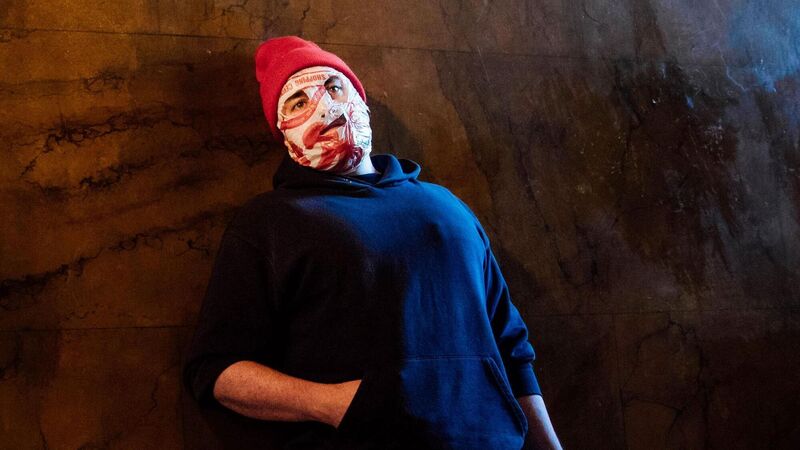
Blindboy has a live event at Cork Podcast Festival. Picture: Brian Arthur
I’m a writer, so my eye is always on writers, and in Ireland, we’re very lucky to have the best. Two authors in particular have books coming out soon, both from Belfast.
Róisín Lanigan is a wonderful writer. There’s an obsessiveness in her characters that I can’t turn away from—you’ll see this in a short story of hers called ‘How to Win’. She’s a bit like if Mary Gaitskill knew what a spicebag tasted like. Róisín has a debut novel coming out in March called I Want to Go Home but I’m Already There.
Another person I read a lot is Wendy Erskine. She released a short story collection called Sweet Home a few years back. If I’m sitting down to write, that’s one of the books I’ll read to remind myself what I love about writing. She has a debut novel called The Benefactors coming out in June, and I can’t wait for that.
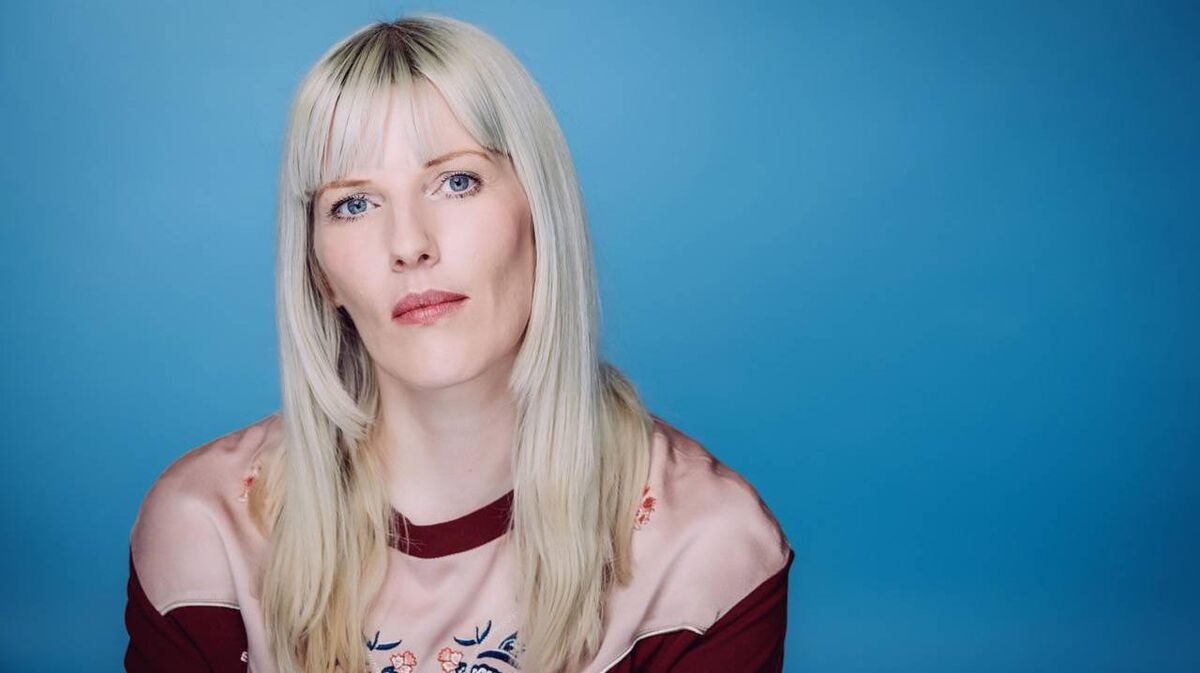
Again, writers. Two short story collections: Mariana Enriquez — The Dangers of Smoking in Bed. She’s an Argentinian writer. She has an ability to blend horror, magical realism, and folk mythology into a cold realism.
Also, Ottessa Moshfegh, an American writer. Her collection Homesick for Another World — just brilliantly weird and hilarious.
Something that I’m consistently researching is the relationship between Irish data centres and the importance of water as a conduit of knowledge in Irish mythology.
There are around 90 data centres in Ireland. A data centre is a building where information is stored electronically. It’s like the physical brain of the internet. Data centres are drawn to Ireland because of our low corporate tax rate, cold climate, and fresh water. The hunger for artificial intelligence is driving demand for data centres in Ireland. They are awful for the climate. At a time when we should be reducing energy consumption, data centres are using 21% of our electricity.
Data centres — these buildings that hold the information of the internet and a vast artificial intelligence network — generate a lot of heat and require huge supplies of water from our rivers to cool them down.
In Irish mythology, our rivers and water are seen as conduits of information and knowledge. How do you think the Salmon of Knowledge got all the knowledge? It swam in Connla’s Well near Cavan, and this well had bubbles that rose up from the Otherworld, containing infinite wisdom. The bubbles fed the hazel trees that surrounded the well. The trees dropped hazelnuts in the well, and the salmon ate the nuts. Poets would visit this well to acquire Imbas (inspiration) from the bubbles of the Otherworld that sparkled up from the bottom to the surface.
We are a land whose mythology is rife with stories about our rivers holding infinite knowledge, and here we are in 2025, a country where the same rivers are being exploited to hold the infinite data of the internet and artificial intelligence. There’s a sadness that comes over me when I think of that.
I’m very aware that I exist at a time of biodiversity collapse. Biodiversity is one of those words that we can gloss over when we see it, like neoliberalism. But it’s a crucial word that I would urge everyone to familiarise themselves with. Biodiversity means the variety of animals, insects, fish, and plants that are alive as part of our ecosystem.
I remember being a child in the 1990s and returning home from a drive down to West Cork with my Da, in a car called a Datsun Bluebird. It was a gorgeous summer evening that had gently folded into that red darkness. When we got as far as Charleville, the headlights on the Datsun gradually began to dim until we couldn't see the road. My Da was calling the car a useless Japanese c**t because he’d only put in new bulbs before the trip.
He pulled over the car beside a gorse hedge that smelled like coconuts, and we got out to look at the headlights. I was haunched down and a bit frightened of the sound of the vehicles bateing past so close to me. The headlights were working perfectly, but the glass was so thick and black with dead insects that the light couldn’t shine through. My Da took out his hanky and wiped away a viscous sludge made up of thousands of crushed insects. The beam of the headlights blinded me. He pointed the black hanky at me and said, “You could spread that on toast and tell a Yank that it’s caviar.”
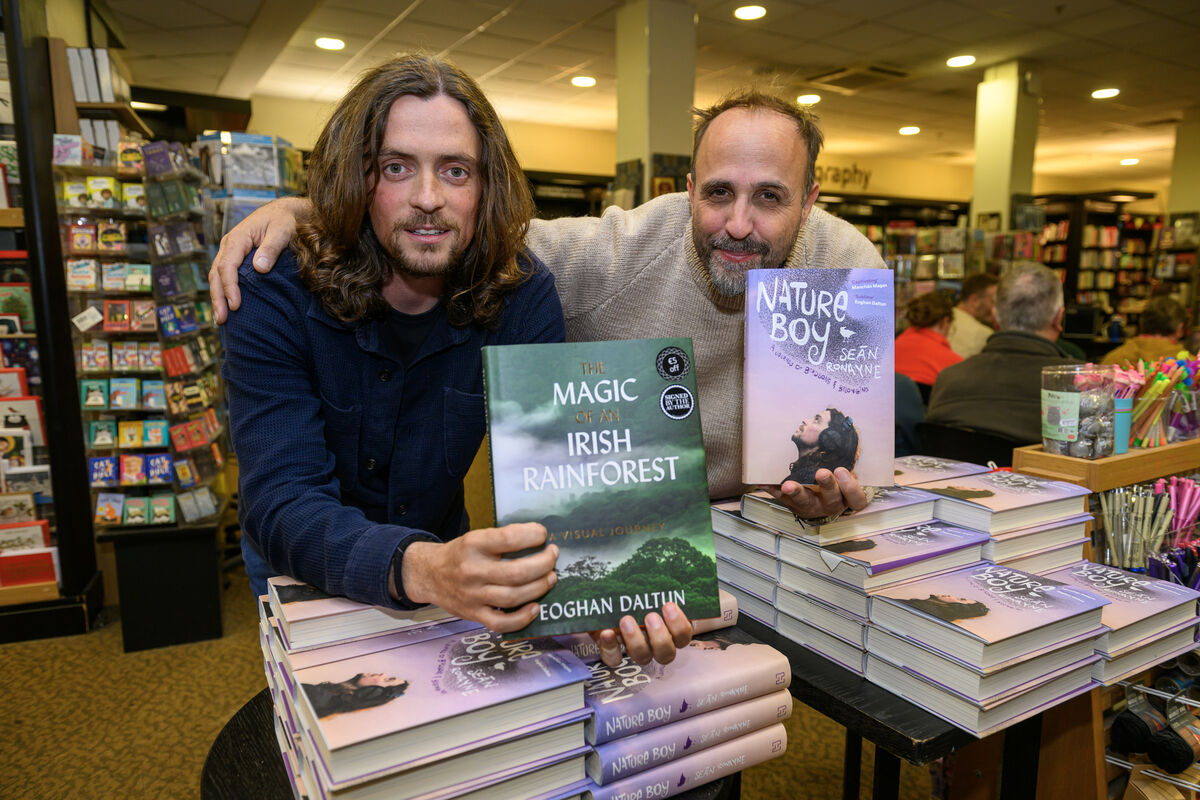
If you were to drive out to the country now, in 2025, on a summer’s night, you could count the dead flies on your headlights with one hand. That’s biodiversity collapse. The insects aren’t there anymore; their numbers have declined massively in my lifetime. I don’t get an itchy scalp in the evening from midges eating the head off me anymore. Pesticides, habitat loss, and the warming climate—all of these things are killing off our insects to the point that we can notice it and name it. That’s biodiversity collapse.
These insects pollinate our fruit and vegetables. We’re starting to see the impact of this on the rising prices of our food and the empty shelves of vegetables and fruit in the supermarket. The global collapse of insect populations is one factor contributing to this. I write about animals and insects to imbue them with meaning so that nature becomes something that I’m afraid of again.
Humans are animals, and I believe that myth and storytelling exist in the human animal to keep us in line with systems of biodiversity. There are great things to be said for living in fear and awe of nature. In Ireland, over a thousand years ago, we had the Bechbretha, or The Bee Judgements, entire tracts of law dedicated solely to the protection of bees because our ancestors understood their importance.
Our mythology has stories of Brigid, who tended beehives in the Otherworld, and her bees would arrive in our world via the morning mist and pollinate our fruit. The bees were magical and belonged to a goddess. Horseshit. But if you believed it, you wouldn’t fuck with bees. Science agrees with this. If the insects go, the entire ecosystem collapses, and we rely on that ecosystem.
That little story above, about my Da wiping the car headlights and the hanky being thick with eviscerated insect sludge? That was the 90s, that really happened. But I promise you, there’s a 20-year-old reading this who reckons I’m exaggerating because their only lived experience is one of insect collapse. That’s called shifting baseline syndrome.
There was a wonderful writer of short stories called Liam O’Flaherty from the Aran Islands, born in 1896. He wrote powerful stories about nature, with rich descriptions of an Irish countryside abundant with wild hares and lakes so full of fish that they shimmered silver at the surface. When I first read O’Flaherty, I genuinely believed he was lying because I have no context for an Ireland full of wild animals and lakes filled with fish. That breaks my heart and terrifies me.
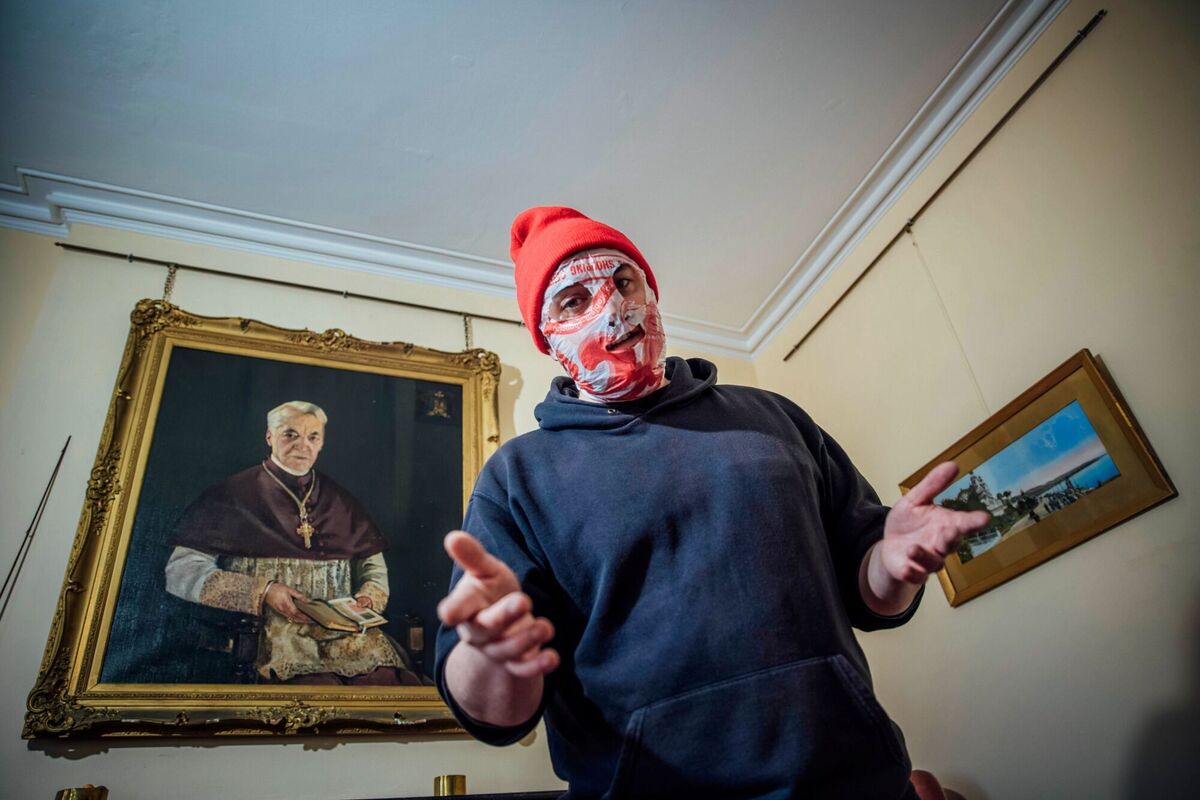
It’s just a new word that I’ve been given to describe how I’ve been my whole life. The criteria for diagnosis has widened over the past ten years, so people like me weren’t diagnosed before. There are lots of eccentric artists that we know and love who would definitely be considered autistic now.
If me being open about it is helping people, then that’s fantastic. But I am hugely cautious about becoming a public face for autism. No two autistic people are alike — I can’t possibly speak for anybody else's experience or needs.
To be honest, I don’t want to be on screen anymore. I don’t even want to be doing the photos that accompany this article. My podcast has been listened to 80 million times worldwide now. I’ve been at it for seven years solid without a lull. My listenership isn’t in Ireland. I’ve a sold-out tour coming up in Australia and New Zealand, and it’s not Irish people coming — it’s Australians who’ve never heard of Limerick.
A few months back, I sold out Hammersmith Apollo over in London. That’s 4,000 people showing up to listen to me read my book. You asked me about Cork earlier. My Granda was in Tom Barry’s flying column down in Castletownkenneigh, and I can get 4,000 Brits to show up to listen to me talk about the Famine with a balaclava on my head.
My point is, it’s my voice and the words that I write that brought me international attention in the end — not jumping around on stage with a bag on my head, singing about fingering someone at a wedding. The plastic bag is a pain in the hole at this stage, but I need it for a quiet private life due to the autism. I’m aware of how much of a distraction it is too.
Every man called Declan over the age of 50 gets a tumescent prostate whenever they see me on TV. “Take off the bag, I can’t take you seriously,” they roar at me in the Facebook comments. I get it, I hear you, Declan. Go for a piss.
My dream TV project would be a nature program — just my voice. No one needs to be looking at me. I’d like to make visually beautiful nature programs where I can have craic with the prose and narration like I do with my podcast. I tried to do this with my most recent RTÉ One documentary, Blindboy: Land of Slaves and Scholars. I’m only on screen a little bit, but it’s mostly my voice.
Also, this year, I turned one of my short stories into a film — Did You Read About Erskine Fogarty? — starring Robert Sheehan. I wasn’t near the camera, I was behind the scenes as a writer. That’s what I want. My strengths are in my voice and my words. I don’t even like looking at myself.
The shared history with Palestine is there, whether people know it or not. Earlier, I mentioned offhand that my own grandfather had been in Tom Barry’s flying column down in West Cork in the 1920s. He took part in the Kilmichael ambush, where 17 of the RIC Auxiliary Division were shot dead. Those Auxies were led by a fella called Hugh Tudor.
What do you think happened to all the Auxies and Black and Tans who terrorised West Cork after 1922? Well, Hugh Tudor founded the Palestine Police and recruited hundreds of Tans and Auxies who had served in Ireland, bringing them to do to the people of Palestine what they had practiced on the people of Ireland: collective punishment.
Palestine was known as Mandatory Palestine then. The Brits controlled it, and they used the Black and Tans to facilitate the Zionist colonial project by introducing the practice of collective punishment on a civilian population.
We tend not to look the other way when we see an injustice that’s present in our own cultural memory. It’s important that we keep this up because the Irish have an enormous global voice — not just abroad, but here at home too.
Look at the fucking state of what’s happening with investment funds and the housing crisis. We need a new Charles Stewart Parnell.
- The Blindboy Podcast is live at Cork Opera House on Thursday, March 13, as part of Cork Podcast Festival (March 13-30). For tickets and full lineup, see corkpodcastfestival.ie
"There’s a very plausible case to be made that the modern Western understanding of Hell is based on Cork. There’s no real description of Hell in the Christian Bible — what’s mentioned is a place where the soul is separated from the love of God. But this idea of Hell as being a fiery destination full of torture and demons is a much later European invention, and I reckon it comes from Cork.
There’s a manuscript called The Vision of Tnugdalis, which was written down by Irish monks sometime around 1149 in Germany. It follows the structure of Irish vision literature, which probably predates Christianity. The story is very similar to The Vision of Adamnán, which was written down in the 8th century.
Here’s the gist of the story: There was a knight from Cork, by the name of Tnugdalis. He was an arsehole — rude, violent, and frequently drinking himself into a stupor. He was filthy with sin, by all accounts. One weekend, he got such a powerful hangover that he went fully unconscious for 48 hours and couldn’t be resuscitated.
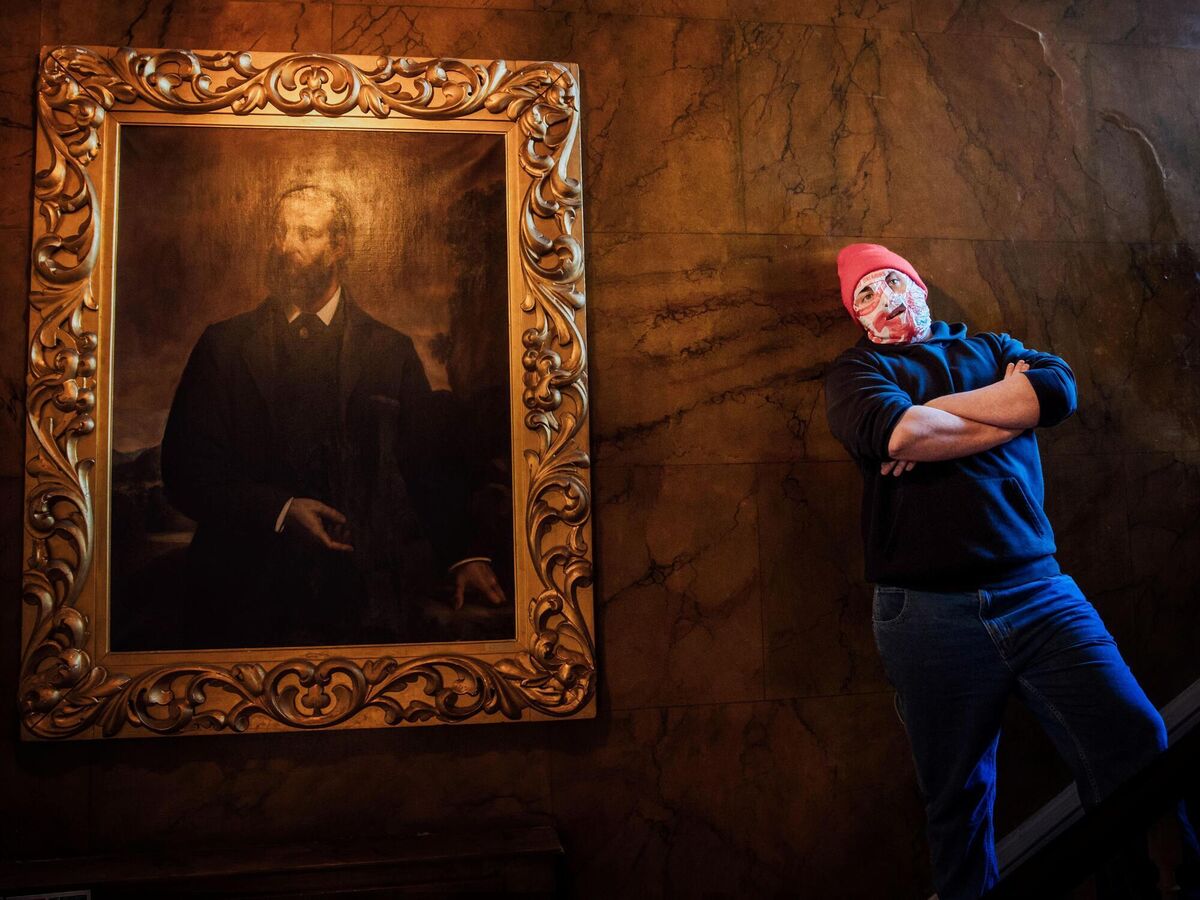
Everyone assumed that he was dead, and a coffin was prepared. But before he could be buried, Tnugdalis woke up, terrified. He told everyone that he had visited the afterlife, a fiery landscape of torture inhabited by wicked divils. Sinners were burned, frozen, eaten by demons, and thrown into rivers of fire—punished according to their sins. He himself was tortured but rescued each time by a guardian angel. The angel eventually took him to Heaven, where he witnessed eternal bliss.
Tnugdalis urged the people of Cork to repent their sins or face eternal fire. That’s the story. It’s brilliant. And when people read it in the 1100s, The Vision of Tnugdalis became the equivalent of an early medieval bestseller. It was copied in monasteries all over Europe. It influenced Dante’s Inferno, and by the 1500s, it was being read by the Dutch painter Hieronymus Bosch, who is famous for painting the vivid visions of Hell that are now our standard definition of the place.
There’s no mention of Hell in the Bible. Hell is based on Cork. I love that about Cork, fair play to ye."


